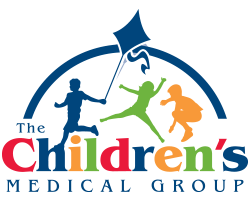08/28/15 – We are excited to announce that our shipment of Commercial Flu Vaccine for ages 3 years and up has arrived! We strongly encourage you to check with your insurance company about your flu vaccine coverage prior to booking an appointment. If you are covered – BOOK YOUR APOINTMENT NOW!
Please check back daily for updates on the arrival of our supply of the Flu Vaccine for 6-35 months, Flu Mist and Vaccine For Children (VFC) supply of Flu Vaccine and Flu Mist.
The 2015 / 2016 Flu Mist & Flu Vaccine will have protection against four different flu viruses: influenza A (H1N1) viruses, influenza A (H3N2) viruses, and influenza B viruses.
VFC Insurance Companies (Only kids 18 and under)
– Medicaid
– Wellcare Healthy Choice – Wellcare Childhealth Plus
– MVP Option Medicaid – MVP Option Childhealth Plus
– Hudson Health Medicaid – Hudson Health Childhealth Plus
– Fidelis Managed Medicaid – Fidelis Childhealth Plus
– Blue Choice Childhealth Plus
Here’s how influenza can hurt your family
Influenza can make you, your children, or your parents really sick.
Influenza usually comes on suddenly. Symptoms can include high fever, chills, headaches, exhaustion, sore throat, cough and all-over body aches. Some people say, “It felt like a truck hit me!” Symptoms can also be mild. Regardless, when influenza strikes your family, the result is lost time from work and school.
Influenza spreads easily from person to person
An infected person can spread influenza when they cough, sneeze or just talk near others. They can also spread it by touching or sneezing on an object that someone else touches later. An infected person doesn’t have to feel sick to be contagious: they can spread influenza to others when they feel well- before their symptoms have begun.
Influenza and it’s complications can be serious that they can put you, your children, or your parents in the hospital-or lead to death.
Each year, more then 200,000 people are hospitalized in the U.S from influenza and it’s complications. 36,000 die, including many children. The people who have the highest probability of being hospitalized and of dying are infants, young children, older adults and people of all ages who have medical conditions such as heart or lung disease. But remember, it’s not only the youngest, oldest, or the sickest who die: every year influenza kills people who were otherwise healthy.
Influenza can be a very serious disease for you, your family, and friends-but can all be protected by getting vaccinated.
There’s no substitute for yearly vaccination in protecting the people you love from influenza. Either type of influenza vaccine (the “shot” or nasal spray) will help keep you and your loved ones safe from a potentially deadly disease. Get vaccinated every year, and make sure your children and your parents are vaccinated, too.
What sort of flu season is expected this year?
It’s not possible to predict what this flu season will be like. Flu seasons are unpredictable in a number of ways. While flu spreads every year, the timing, severity, and length of the season varies from one year to another.
Will new flu viruses circulate this season?
Flu viruses are constantly changing so it’s not unusual for new flu viruses to appear each year. For more information about how flu viruses change, visit How the Flu Virus Can Change.
When will flu activity begin and when will it peak?
The timing of flu is very unpredictable and can vary in different parts of the country and from season to season. Most seasonal flu activity typically occurs between October and May. Flu activity most commonly peaks in the United States between December and February.
What should I do to protect myself from flu this season?
CDC recommends a yearly flu vaccine for everyone 6 months of age and older as the first and most important step in protecting against this serious disease. People should begin getting vaccinated soon after flu vaccine becomes available, if possible by October, to ensure that as many people as possible are protected before flu season begins. However, as long as flu viruses are circulating in the community, it’s not too late to get vaccinated.
In addition to getting a seasonal flu vaccine if you have not already gotten vaccinated, you can take everyday preventive actions like staying away from sick people and washing your hands to reduce the spread of germs. If you are sick with flu, stay home from work or school to prevent spreading flu to others.
What should I do if I get sick with the flu?
Antiviral drugs are prescription drugs that can be used to treat flu illness. People at high risk of serious flu complications (such as children younger than 2 years, adults 65 and older, pregnant women, and people with certain medical conditions) and people who are very sick with flu (such as those hospitalized because of flu) should get antiviral drugs. Some other people can be treated with antivirals at their health care professional’s discretion. Treating high risk people or people who are very sick with flu with antiviral drugs is very important. Studies show that prompt treatment with antiviral drugs can prevent serious flu complications. Prompt treatment can mean the difference between having a milder illness versus very serious illness that could result in a hospital stay.
Treatment with antivirals works best when begun within 48 hours of getting sick, but can still be beneficial when given later in the course of illness. Antiviral drugs are effective across all age-and risk groups. Studies show that antiviral drugs are under-prescribed for people who are at high risk of complications who get flu. This season, three FDA-approved influenza antiviral drugs are recommended for use in the United States: oseltamivir, zanamivir and peramivir.
What should I do to protect my loved ones from flu?
Encourage your loved ones to get vaccinated. Vaccination is especially important for people at high risk for serious flu complications, and their close contacts. Also, if you have a loved one who is at high risk of flu complications and who develops flu symptoms, encourage him or her to get a medical evaluation. He or she might need treatment with influenza antiviral drugs. CDC recommends that people who are at high risk for serious flu complications who get the flu be treated with influenza antiviral drugs as quickly as possible. People who are not at high risk for serious flu complications who get the flu may be treated with influenza antiviral drugs at their doctor’s discretion. Children between 6 months and 8 years of age may need two doses of flu vaccine to be fully protected from flu. The two doses should be given at least 4 weeks apart. Your child’s doctor or other health care professional can tell you whether your child needs two doses. If your child does need two doses of vaccine to be fully protected, it is a good idea to begin the vaccination process sooner rather than later. Visit Children, the Flu, and the Flu Vaccine for more information.
Children younger than 6 months are at higher risk of serious flu complications, but are too young to get a flu vaccine. Because of this, safeguarding them from flu is especially important. If you live with or care for an infant younger than 6 months of age, you should get a flu vaccine to help protect them from flu. See Advice for Caregivers of Young Children for more information.
In addition to getting vaccinated, you and your loved ones can take everyday preventive actions like staying away from sick people and washing your hands to reduce the spread of germs. If you are sick with flu, stay home from work or school to prevent spreading influenza to others.
Source: CMG

